Overcoming Food Insecurity During COVID-19
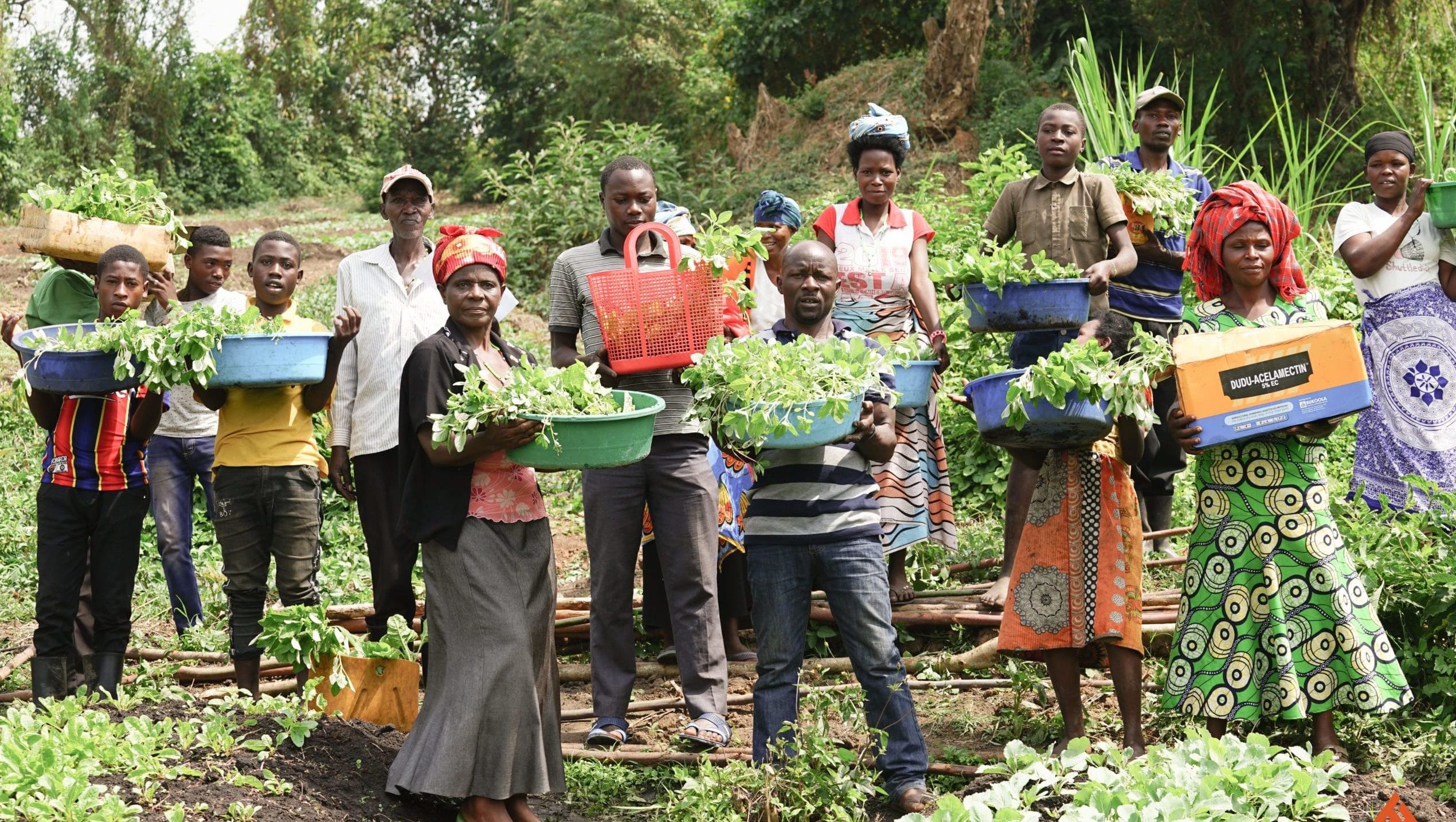
In February 2020, Uganda registered its first case of COVID-19. Since then, the disruption of supply chains caused widespread food shortages, especially in last-mile rural villages in Uganda. Smallholder farmers and other local producers lost all contact they had with local markets and customers as well as other potential producers. Inevitably, this resulted in a cycle of food insecurity, and the loss of savings and productive assets in an effort to survive.
“COVID-19 is a disease that broke out and did not have treatment. The government advised us to stay home. Taxis, motorcycles, and bicycles were not allowed to carry any passengers. Markets were closed and we had nowhere to get food,” –Emmanuel Barekye LC Chairperson of Kazindiro Village, Rubanda District expressed.
Raising The Village (RTV), introduced its ‘Ready To Eat’ (RTE) initiative to address this food and financial insecurity problem partner households were facing. Each family was given a sustainable food supply with at least 1 nutritious meal per day over 12 months through the Ready-to-Eat garden boxes, with each kit consisting of a variety of 150 vegetable seedlings designed to maximize a 5×5 metre garden, or fill existing household items such as jerry cans or old sacks. Crops were ready to harvest within 3-4 weeks post distribution. The recipients were also trained and provided with good agronomic practices knowledge like applying organic manure and pesticides, planting in line, spacing and weeding.
By September of 2020, over 221,780 people were supported in the first phase of RTE in Kanungu, Mitooma, and Rukungiri District. By May 2021 a total of 1,007,785 beneficiaries were reached in districts of Abim, Kaliro, Kagadi, Kyenjojo, Rubanda, Luuka, Mitooma, and Kibaale.
Today, we are proud to share with you portraits and testimonials of some of the resilient small-holder farmers RTV collaborated with during the RTE initiative roll-out.
Enid
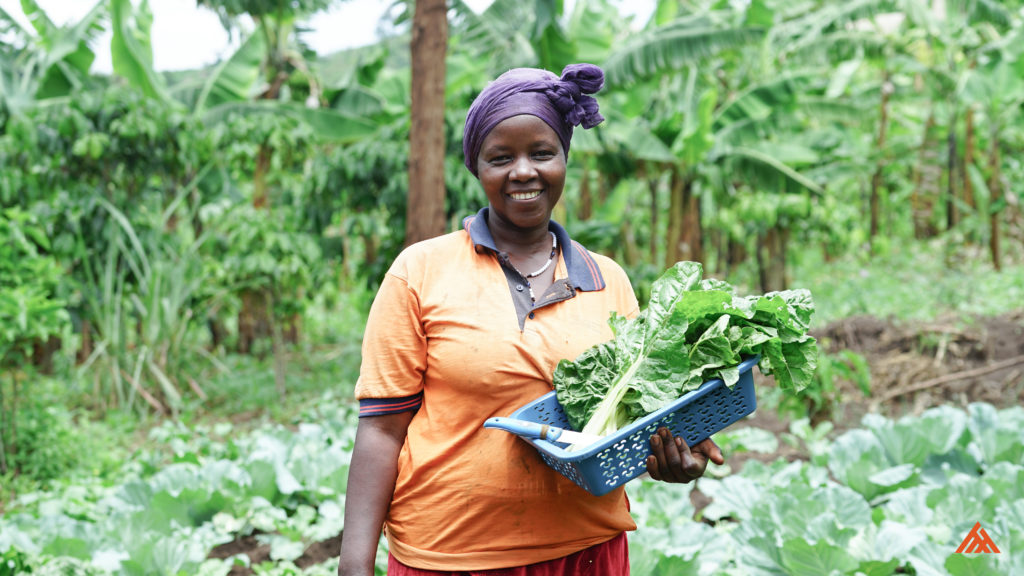
“ I have five children and sometimes I could only feed them with potatoes and cassava. Food that has no sauce. Now that we have our own vegetables, we are happy and we have enough crops to make a healthy meal every day.”
Enid, a mother of five, was disproportionately affected by the pandemic and struggled to find a sustainable food source for her children for months on end. She was among the beneficiaries of the RTE initiative in Nyabikoni village, Kyenjojo district.
Ali
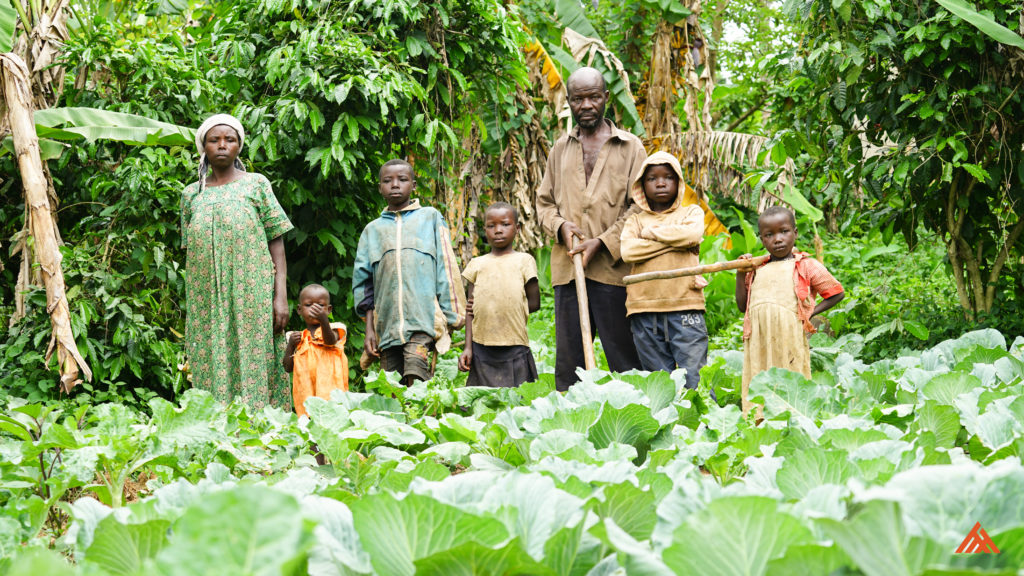
“When Raising The Village came to our community they trained us in vegetable farming. They also gave us vegetable seedlings; cabbages, eggplants, spider plant, amaranthus, black nightshade, among others which has diversified our food diet. We were also able to take care of our children’s school tuition and needs, through the money we generated from selling excess vegetables.”
Ali, and his family in Galilaya B Village in Kagadi District, also benefited from the RTE garden box assistance. Ali participated in good agricultural practices training and was able to learn different harvesting techniques for a variety of vegetables.
Apollo & Seforoniya
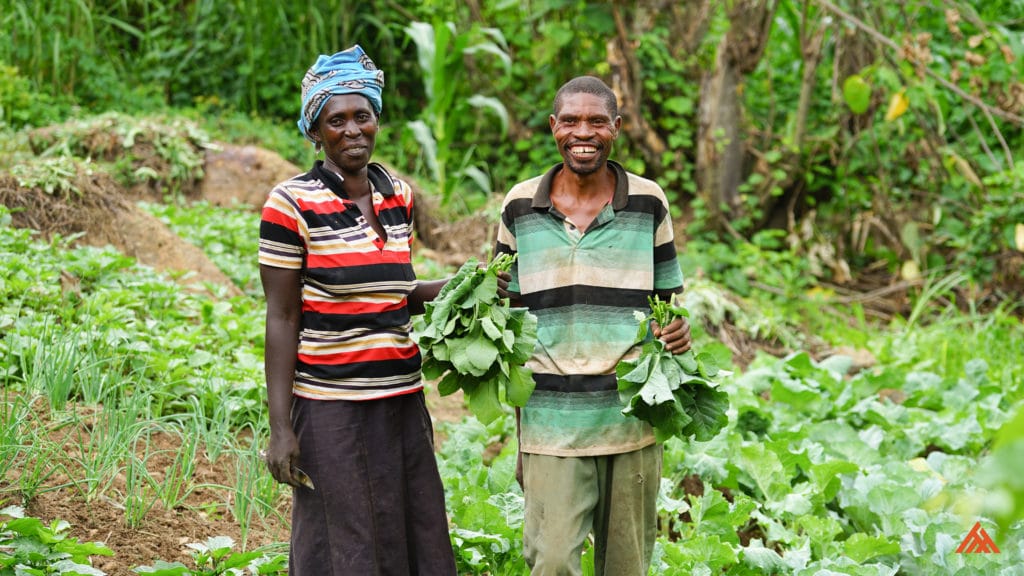
Apollo and Seforoniya, a couple from Garilaya B Village in Kagadi District, struggled immensely in their garden harvest during the pandemic due to the dry season in Uganda. They did not harvest as they had anticipated, leaving them with very little food source for the family. Apollo recalls having skipped some meals due to how serious their amount of food shortage was. Through the RTE initiative, they received vegetables and good agronomic practices training to ensure they had maximum output out of their garden to get back on their feet. Today, the family is harvesting a variety of vegetables, which they can also financially benefit from.
Philip
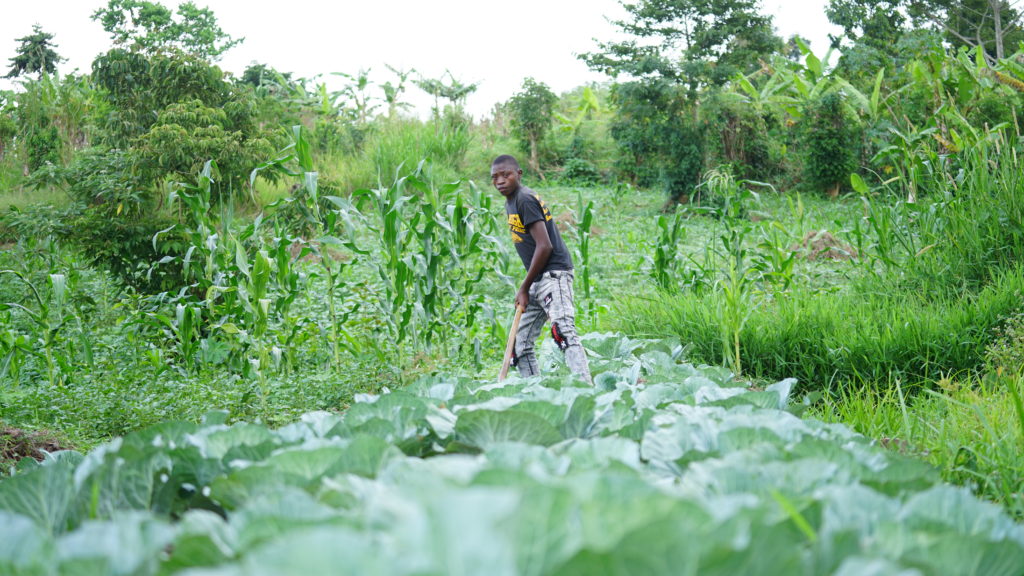
“I heard that having a strong immune system can help your body in fighting viruses like COVID-19. I also learnt that vegetables are great immune system boosters on top of their other nutritious benefits. That is why I planted my garden to have a strong source of food and nutrition for years to come”
When schools closed due to COVID-19, Philip, a 17-year-old, resorted to farming while staying at home. He was among the beneficiaries of the RTE initiative, and participated in training as a young farmer where he learnt the importance of nutrition and the health benefits of consuming vegetables as a part of one’s diet. Philip then decided to plant his own small vegetable garden, next to his father’s, taking his first step towards farming himself.
Julius
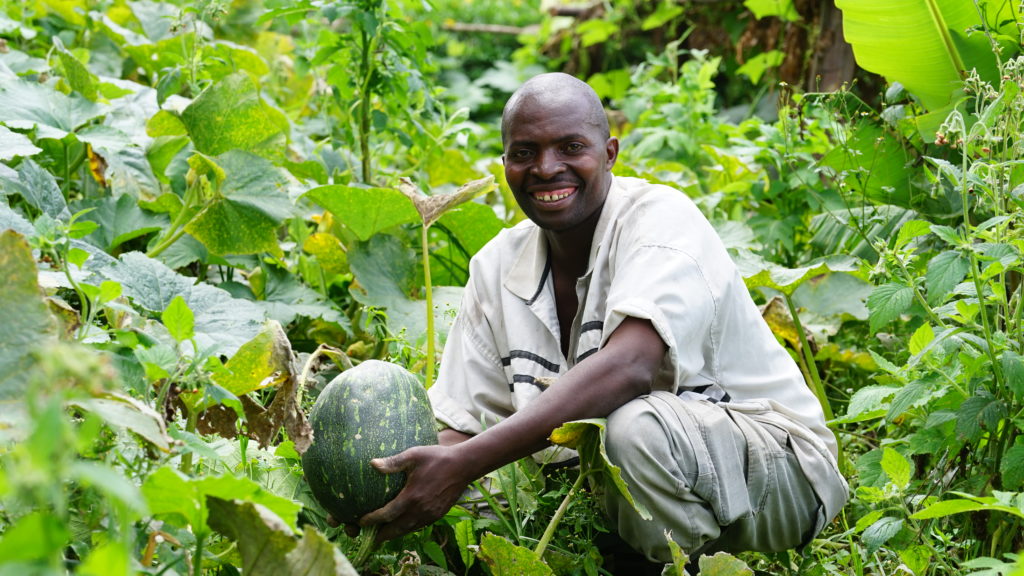
“My favorite vegetable in my newly planted garden is the pumpkin. It amazed me how it grew with time.I will not harvest it until it reaches its optimum size so that many people in my community can have a share of it.”
Julius was among the partner villages that benefited from the RTE initiative in Nyarurambi Village in Rubanda District. He received a variety of vegetable seedlings from the garden boxes and had the opportunity to observe how each vegetable grew and could benefit the rest of his community.
John
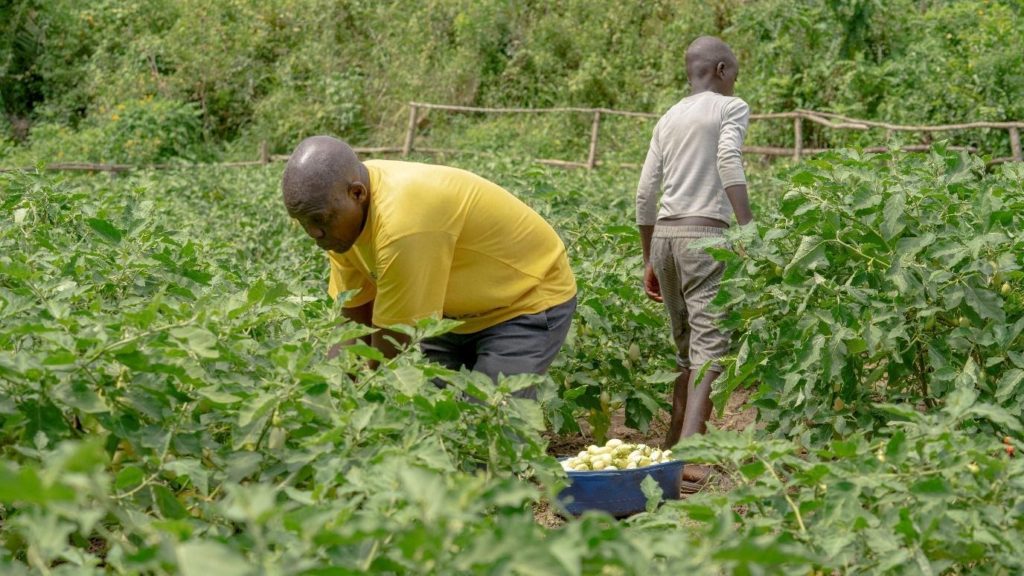
“I can harvest up to one sack (four basins) a week which I sell at the price of UGX 7,000 (around $1.98). This provides me with income which I can use for other household activities and also pay some seasonal workers that I work with during the planting season.”
John was one of the early beneficiaries of RTE garden boxes dating back to its first phase implemented in Nyarubare Village in Rukungiri district. Today, he is the proud owner of a garden of around a quarter acre, planted with white eggplant as well as other vegetables that provide food for his family and have also become a source of additional income. Now that markets have reopened with certain restrictions, John has the opportunity to sell some of his harvest in local markets.
Thanks to our team on the ground, the local governments, and our funders, along with the participation of incredibly enthusiastic village members, RTV has successfully completed all the distribution and transplanting of seedlings to beneficiary home gardens. If you would like to learn more about the outcomes and outputs of this initiative, please take a look at the RTE Interactive Report.

